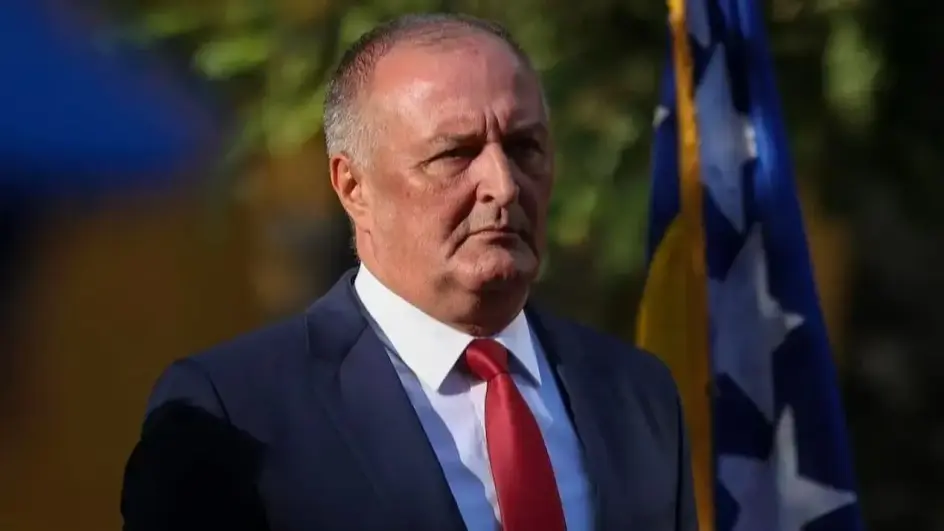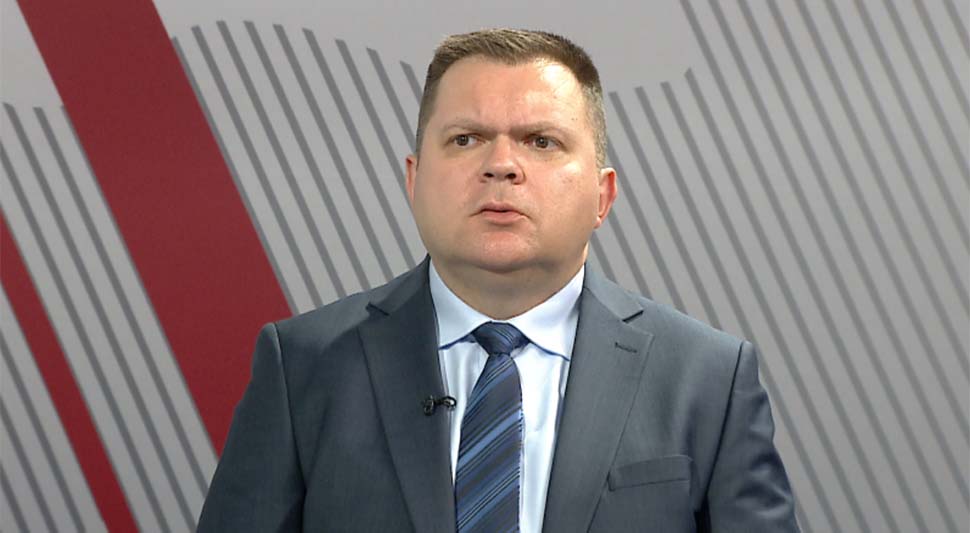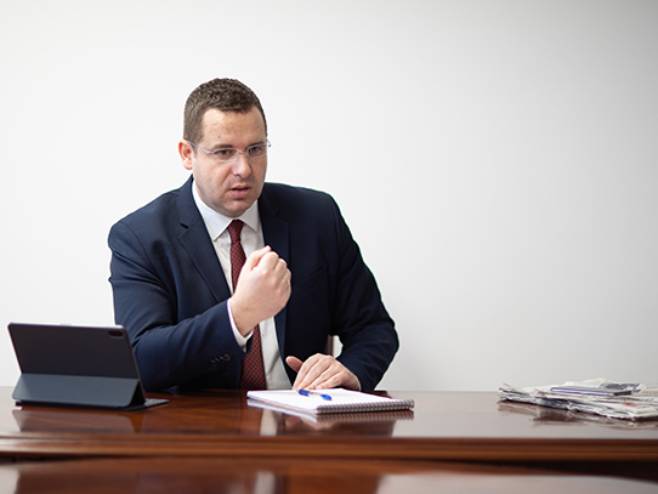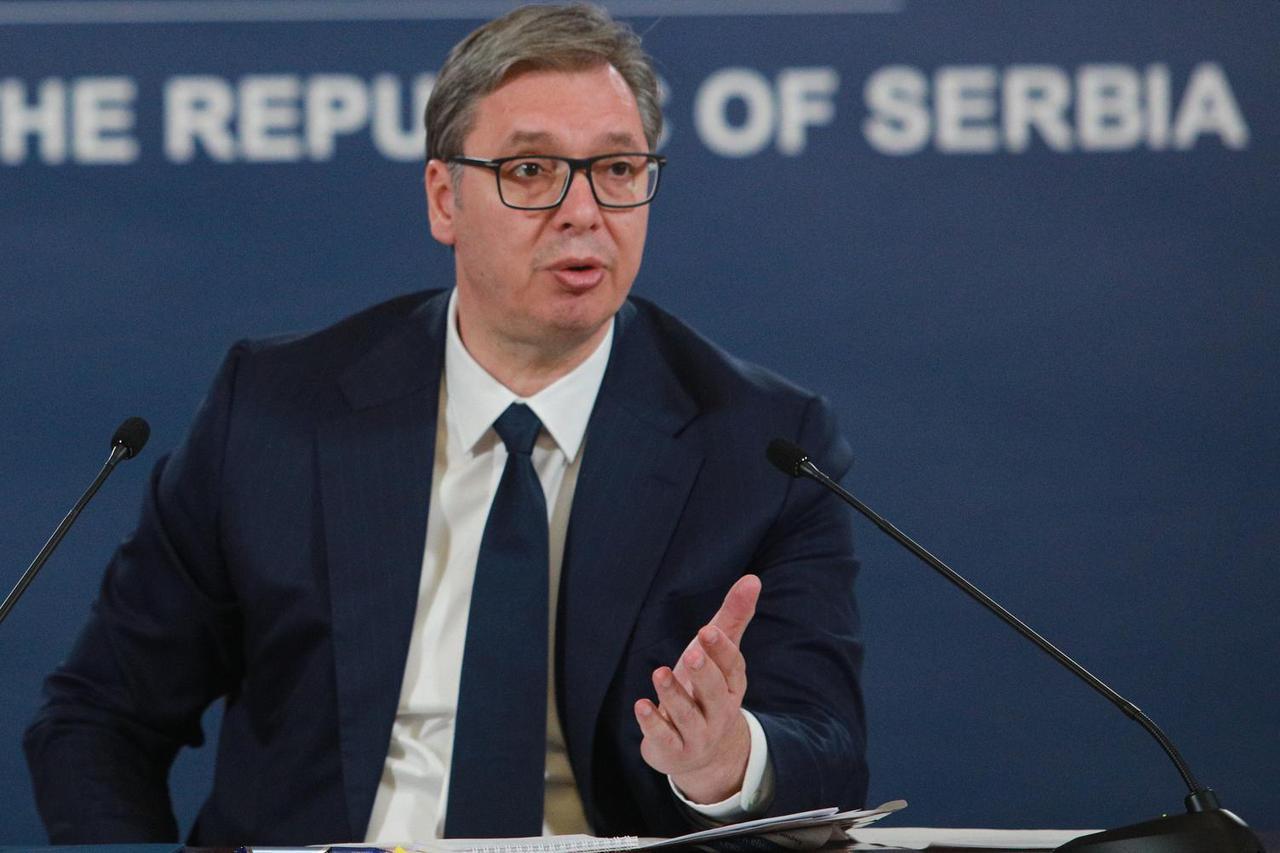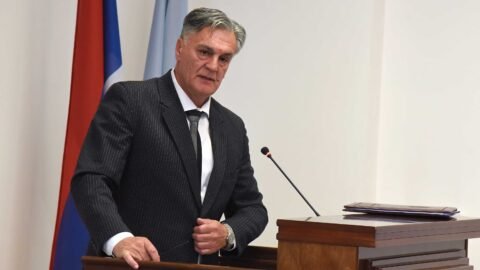The process against the president of Republika Srpska, Milorad Dodik, is a rigged political trial controlled by a foreign factor, said the ambassador of BiH to Serbia, Aleksandar Vranješ, emphasizing that while Serbia has no mechanisms to interfere in current internal affairs, moral support from Serbia remains highly significant for Republika Srpska.
“If we look at the entire context, this political and judicial process against President Dodik is a rigged trial. We have an unelected, self-proclaimed high representative, presenting himself as such, who has never been confirmed by the UN Security Council, and who invents a criminal offense—‘disrespecting his own decisions’,” Vranješ told Tanjug.
He added that such a criminal offense never passed through any parliamentary procedure, yet the imposed court and prosecutor’s office used Schmidt’s decision as the basis to prosecute and ultimately convict President Dodik.
“What can we expect from a process that is entirely staged? Initially, the U.S. Ambassador Murphy was involved, along with the so-called high representative Schmidt. Eventually, the British Embassy, the German Embassy, and the EU Delegation will get involved as well. It is clear this is a rigged process controlled by a foreign factor, where Bosniak judges—who carry a full set of prejudices, stereotypes, and political leanings—cannot be neutral or objective, and are judging the president of Republika Srpska,” Vranješ said.
He stressed that Republika Srpska expects support from Serbia as it always has, but it is clear that Serbia cannot interfere in internal matters currently unfolding.
“Serbia strongly supports Republika Srpska, but remains within the framework defined by the Dayton Peace Agreement. Serbia cannot go beyond that framework. Still, moral support is important to us. It’s no longer a question of whether Serbia can get involved through some mechanism. That simply isn’t possible,” he emphasized.
He explained that the Serb people feel equally affected by the issues happening in southern Serbia, Republika Srpska, and other places where Serbs live.
“As one people, we feel that support—which is the only one we truly need. That’s why I mention moral support,” Vranješ stated.
On the other hand, Vranješ pointed out that today, in the global arena, only those who applaud the court and the verdict against Dodik are considered to be “on the right side,” while those who question the fairness of the process are the target of criticism.
He emphasized that all countries that respect the Dayton Peace Agreement and international law cannot interfere in internal affairs.
“This is where we see the paradoxical order imposed in BiH. Russia will not interfere or exert pressure in Sarajevo, nor will Serbia or Hungary. They offer political and moral support. But the ones interfering are those Western countries whose mouths are full of so-called European values and democracy… and yet they consider it completely normal for an unelected foreigner to impose decisions and suspend the Constitution of the Federation for 24 hours,” the ambassador of BiH in Serbia said.
He stressed that the National Assembly of Republika Srpska must decide whether Dodik should accept the court’s decision, but noted that pressure will not subside even if he does.
“Whatever is decided in Banja Luka regarding this verdict, the pressure will not disappear, because it is aimed at changing the structure of BiH. In that vision, Republika Srpska—as it currently exists under Dayton, with its level of autonomy and sovereignty—stands in the way. The pressure will continue, whether Milorad Dodik is in the picture or not, until Republika Srpska is reduced to a politically and constitutionally insignificant region within Bosnia and Herzegovina. It may still carry a symbolic name, but it will no longer have the political mechanisms it currently possesses,” Vranješ concluded.
The Appellate Division of the Court of BiH on Friday upheld the first-instance verdict against Republika Srpska President Milorad Dodik.
Dodik was sentenced to one year in prison and a six-year ban from political activity for non-compliance with the decisions of Christian Schmidt.
Source: RTRS
